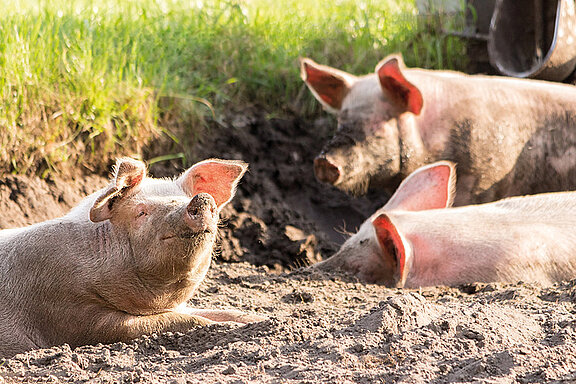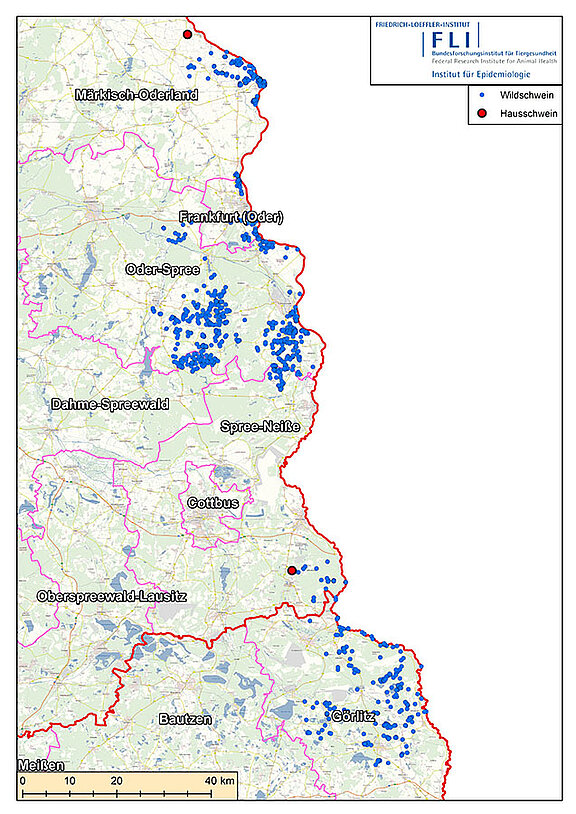The National Reference Laboratory for African Swine Fever (ASF) at the Friedrich-Loeffler-Institut (FLI) confirmed the first cases of ASF in domestic pigs in Germany on the evening of 15 July 2021. Affected are an organic farm in the district of Spree-Neiße, where one sow died, and a small holding with two pigs in the district of Märkisch-Oderland. The organic farm is located in an infected core zone established because of ASF in wild boar, the small holding in a so far ASF-free white zone. The cause of introduction is unclear in both cases. ‚Unfortunately, these cases do not come as a complete surprise. An introduction into German domestic pig herds had to be expected at the latest since the detection of the infection in wild boar in Germany in September 2020. In its April risk assessment on outdoor and free-range pig farming, the FLI stressed the importance of protecting pigs, especially in the core zone and in the area at risk,’ says the President of the FLI, Prof. Dr. Dr. h. c. Thomas C. Mettenleiter.
The pigs from the two holdings must now be killed and destroyed in accordance with the Swine Fever Ordinance. In addition, legally prescribed restriction zones will be set up by the local authorities. Neither live pigs nor pig products may be transported from farms located in these zones.
In the district of Spree-Neiße, ASF first appeared in wild boar in Germany in September 2020. Since then, 103 cases have been confirmed there, and 261 in the Märkisch-Oderland district.
The ASF virus can be transmitted from wild boars to domestic pigs through both direct and indirect contact. Infection usually occurs oro-nasally. The pathogen is very stable and remains infectious in the environment for a long time. Therefore, it can be transmitted through raw or insufficiently heated meat products, contaminated feed, vehicles, clothing and tools.



